#kidney stone removal surgery
Text
How can I get rid of pain due to kidney stone?
A kidney stone is an irregularly-shaped crystallised mass of minerals and acid salts that stick together in concentrated urine. Kidney stones can be as small as a grain of sand or they can grow to the size of a golf ball. Depending on the size of your kidney stone/s, you may not even realise that you have one.
But in most cases, even small stones can cause extreme discomfort, pain and nausea as they exit your body through your urinary tract. Drinking fluids can help the process, which usually takes up to three weeks.
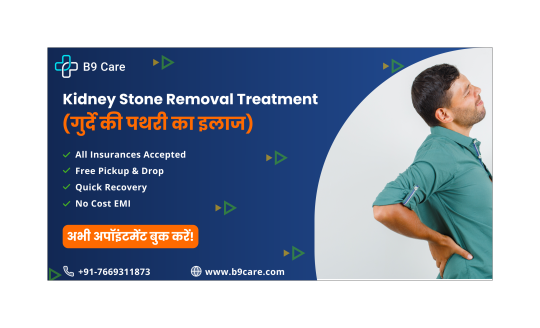
Common symptoms of kidney stones include sharp, cramping pain in the back and side. This feeling often moves to the lower abdomen or groin. The pain often starts suddenly and comes in waves. It can come and go as the body tries to get rid of the stone.
Pain relievers are the first medicines that are recommended especially in the case of small kidney stones. Passing a small stone can cause some discomfort. To relieve mild pain, your doctor may recommend pain relievers such as ibuprofen, Advil, or naproxen sodium (Aleve).
If the medication therapy is not working on the kidney stones, then.The doctor might recommend the kidney stone Laser treatment. This is a non-invasive procedure in which the targeted sound waves are used to break up the kidney stone into smaller pieces so that it becomes less painful for you to pass the kidney stones. This procedure is known as extracorporeal shock wave lithotripsy (ESWL).
The Kidney Stone Laser Treatment is one of the best modes of treatment for kidney stones as this next technology makes the procedure painless, and has no side effects.
Book an appointment with the best kidney stone specialist near you with B9 Care.
Visit: https://www.b9care.com/kidneystone
#kidney stones#kidney stone removal surgery#kidney stone treatment#kidney stone doctor near me#kidney stone removal india#b9care#healthcare#wecareforyou
6 notes
·
View notes
Photo
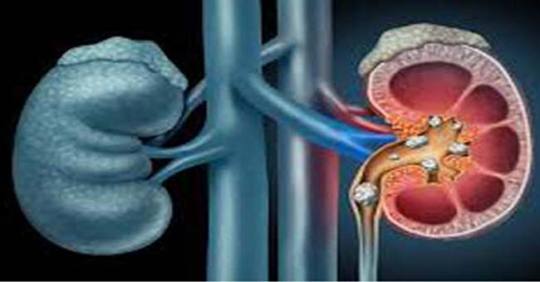
(via Kidney Stone Removal Surgery Cost in India)
0 notes
Text
Best Critical care hospital in Hyderabad
Aware Gleneagles Global hospital L.B.Nagar Hyderabad is recognized as one of the top facilities for critical care in Hyderabad, addressing the needs of patients grappling with severe, life-threatening health conditions where crucial organ systems are at risk. Our critical care team employs cutting-edge medical, monitoring, and diagnostic equipment to maintain organ functionality and boost patient health, thereby allowing the underlying illness or injury to be treated effectively. Our critical care services extend across adult intensive care units, pediatric intensive care units, and various post-operative and step-down units, all staffed by a specialist team of healthcare professionals.
As such, our critical care units serve as a pivotal component of our acute care hospital infrastructure. In situations where patient volumes surge unexpectedly, causing potential overloads in critical care units, we have the capacity to manage effectively, minimizing the impact on surgeries and reducing waiting times in emergency departments. Furthermore, we stand proud as a 24-hour hospital in Hyderabad, located conveniently near you, equipped with every amenity necessary to offer patients the best possible treatment. Whether its critical care or ambulance services you require, rest assured knowing we are always available, fully equipped, and ready to provide top-tier healthcare services.
Aware Gleneagles Global Hospital L.B.Nagar Hyderabad proudly stands among the best hospitals for emergency services in Hyderabad. We are renowned for providing effective, affordable care. The key factors that establish us as a leading hospital for critical care in Hyderabad are:
Doctor Expertise: Our emergency department's reputation is primarily due to our elite team of doctors. We employ only the most skilled and experienced physicians, assuring patients of superior care quality. Our doctors are proficient at managing emergency cases, ensuring prompt and efficient care.
Medical Personnel: Our emergency department comprises a holistic team that includes doctors, nurses, coordinators, and other healthcare professionals who react swiftly in critical situations. We strive to provide exceptional trauma care.
Facilities and Infrastructure: One of the compelling reasons people choose us is our state-of-the-art infrastructure. From patient rooms and well-equipped ICUs to emergency medical kits, ambulance services, and advanced medical devices, our hospital is fully equipped to handle any situation.
Trustworthiness: We understand that admission into a critical care unit is only required in life-threatening situations. Our team is dedicated to providing the highest level of care in these sensitive cases, aiming to achieve positive outcomes
Comprehensive Care: We understand that patients in emergencies need swift and effective recovery. Therefore, we provide a complete range of care, from diagnosis and treatment to post-recovery follow-ups, ensuring the patient's journey to health is smooth and uninterrupted.
In summary, we are committed to delivering exceptional emergency and critical care medicine services, always putting the patient's health and wellbeing first.
#nephrologist in hyderabad#kidney stone removal surgery#kidney transplant surgery#kidney replacement cost#Emergency and critical medicin#best hospital for emergency services
0 notes
Text
Kidney Stone Removal Surgery
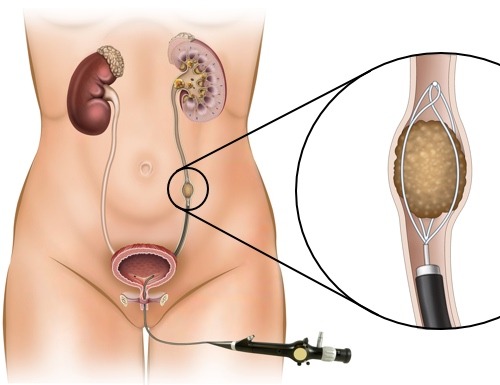
Kidney stones, also known as renal calculi, are solid mineral and salt deposits that form in the kidneys. They can cause severe pain and discomfort when they obstruct the urinary tract. While many kidney stones pass on their own, larger stones or those causing complications may require surgical intervention. In this article, we will explore kidney stone removal surgery, including various procedures and treatment options available to effectively manage this condition.
Understanding Kidney Stones
Kidney stones form when certain substances, such as calcium, oxalate, and uric acid, become concentrated in the urine, crystallize, and stick together to form solid masses. The size, location, and composition of the stones can vary. Some stones may be small enough to pass through the urinary tract without causing noticeable symptoms, while others can be larger and require medical intervention for removal.
Symptoms and Diagnosis
Kidney stones can cause a range of symptoms, including:
1. Severe Pain: Intense pain in the back or side, often radiating to the lower abdomen and groin. This pain is commonly referred to as renal colic and can be excruciating.
2. Hematuria: Blood in the urine, which may appear pink, red, or brown.
3. Frequent Urination: Increased frequency of urination, often accompanied by a sense of urgency.
4. Cloudy or Foul-Smelling Urine: Discolored or malodorous urine may indicate the presence of an infection or an obstructed urinary tract.
To diagnose kidney stones, healthcare professionals may use various tests and imaging techniques, including:
1. Urine Analysis: A urine sample is examined to identify any abnormalities, such as the presence of blood or infection.
2. Imaging Tests: X-rays, ultrasound, or CT scans may be performed to visualize the kidney stones, determine their size and location, and assess any associated complications.
Treatment Options
The choice of treatment for kidney stones depends on several factors, including the size, location, composition of the stones, the severity of symptoms, and the patient's overall health. In cases where kidney stones do not pass naturally or cause significant complications, surgical intervention may be necessary. Here are the main kidney stone removal surgery procedures:
1. Extracorporeal Shock Wave Lithotripsy (ESWL): ESWL is a non-invasive procedure that uses shock waves to break down kidney stones into smaller fragments. These smaller pieces can then pass more easily through the urinary tract. ESWL is typically used for smaller stones located in the kidney or upper urinary tract.
2. Ureteroscopy (URS): URS involves the insertion of a thin, flexible tube called a ureteroscope into the urethra and up into the urinary tract. This allows the surgeon to directly visualize and access the stone. Small stones can be removed using a basket-like device, while larger stones may be fragmented using laser energy before removal.
3. Percutaneous Nephrolithotomy (PCNL): PCNL is a minimally invasive surgical procedure used for large kidney stones or when other treatments are not feasible or effective. It involves creating a small incision in the back to access the kidney directly. A nephroscope is inserted, and the stone is either removed intact or fragmented using specialized tools.
4. Open Surgery: In rare cases, open surgery may be required for large or complex kidney stones that cannot be treated with less invasive techniques. This involves making an incision in the abdomen or side to access the kidney directly and remove the stone.
Recovery and Complications
The recovery process after kidney stone removal surgery depends on the specific procedure performed and the individual's overall health. Here are some general considerations:
1. Hospital Stay: The length of hospitalization varies depending on the procedure. ESWL and URS are often performed on an outpatient basis, while PCNL and open surgery may require a hospital stay of a few days.
2. Pain Management: Pain medication may be prescribed to manage postoperative discomfort. The severity and duration of pain can vary depending on the procedure and the size and location of the stones.
3. Fluid Intake and Diet: After surgery, it is crucial to drink plenty of fluids to promote urine flow and help flush out any remaining stone fragments. Dietary modifications may also be recommended, such as reducing sodium and oxalate intake.
4. Follow-up Care: Regular follow-up appointments with the healthcare provider are essential to monitor healing, evaluate urine flow, and address any concerns or complications.
Complications associated with kidney stone removal surgery are relatively rare but can include:
1. Infection: There is a small risk of developing a urinary tract infection or kidney infection following surgery. Symptoms may include fever, chills, and pain during urination. Antibiotics are typically prescribed to prevent or treat infections.
2. Bleeding: Some procedures, particularly PCNL and open surgery, carry a risk of bleeding. In most cases, bleeding is minimal and resolves on its own. However, excessive bleeding may require further medical intervention.
3. Injury to surrounding structures: During surgery, there is a slight risk of injury to surrounding organs or structures, such as the ureters or blood vessels. However, this risk is generally low, and skilled surgeons take precautions to minimize such complications.
Cost in India
The cost of kidney stone removal surgery varies greatly based on a number of factors, including the country or location where the procedure is conducted, the type of surgery, the intricacy of the case, the healthcare institution, and the individual's insurance coverage.
ESWL might cost between $2,000 and $10,000, depending on the location and number of treatments required for successful stone fragmentation. Ureteroscopy (URS) costs $5,000 to $15,000 or more, depending on criteria such as the complexity of the stone(s), the requirement for laser lithotripsy, and the length of the treatment.
Open surgery for kidney stone removal is uncommon and usually reserved for complicated situations. The cost can range from $20,000 to $50,000 or more, depending on factors such as the surgical method, hospital rates, length of hospital stay, and any associated problems.
Conclusion
Kidney stone removal surgery is a crucial treatment option for individuals with large or complex kidney stones or those experiencing severe symptoms that significantly impact their quality of life. The choice of surgical procedure depends on several factors, and healthcare professionals will consider the specific situation of each patient to determine the most appropriate approach. By understanding the different surgical options, the recovery process, and potential complications, patients can make informed decisions in collaboration with their healthcare providers. Timely diagnosis and appropriate management of kidney stones are vital to alleviate symptoms, prevent complications, and promote overall kidney health.
0 notes
Text
Which is the best hospital for kidney stones in Delhi?
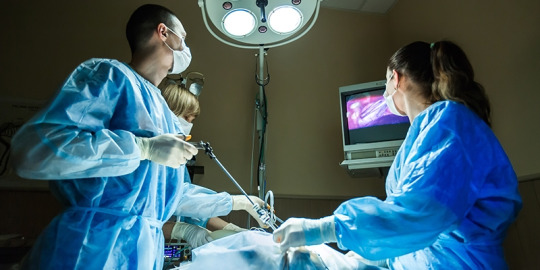
Choosing the best hospital for kidney stones in Delhi can be a crucial decision in ensuring effective treatment and care. While there are several reputable hospitals in the city, here are a few that are known for their expertise in treating kidney stones:
All India Institute of Medical Sciences (AIIMS):
AIIMS is a premier medical institution renowned for its world-class healthcare services. The Department of Urology at AIIMS is well-equipped with advanced facilities and a team of experienced doctors specializing in kidney stone treatment. They offer a wide range of treatment options, including minimally invasive procedures, to provide comprehensive care to patients.
Minimal Access Smart Surgery Hospital (MASSH)
MASSH is a network of Super Specialty Hospitals, bringing our first premier treatment destination in South Delhi. They cater to expedite advanced treatments for Urology & Andrology, Laparoscopic GI, Laparoscopic Gynaecology, Oncology, Gastro, Cosmetic, Functional Medicine and Lifestyle Disorders. MASSH is a healthcare delivery system where quality, affordability, and luxury merge into creating smart and safe hospital experiences. Click Here
Sir Ganga Ram Hospital:
Sir Ganga Ram Hospital is a renowned multispecialty hospital with a dedicated department for urology. The hospital boasts a team of highly skilled urologists who are proficient in treating kidney stones. They utilize the latest techniques and technologies, including laser lithotripsy and minimally invasive surgeries, to ensure optimal outcomes for patients.
Medanta - The Medicity:
Medanta is a leading multi-specialty hospital that houses a state-of-the-art urology department. With a team of skilled urologists and advanced infrastructure, Medanta offers comprehensive diagnosis and treatment for kidney stones. The hospital is equipped with advanced endoscopic and laser technologies for effective stone removal.
Fortis Escorts Heart Institute and Research Centre:
Fortis Escorts is a renowned hospital known for its expertise in urology and nephrology. The hospital has a dedicated team of urologists and nephrologists who specialize in the diagnosis and treatment of kidney stones. They provide a wide range of treatment options, including lithotripsy, ureteroscopy, and percutaneous nephrolithotomy, depending on the severity of the condition.
Max Super Speciality Hospital, Saket:
Max Super Speciality Hospital in Saket is equipped with modern infrastructure and a team of experienced urologists. They offer comprehensive services for kidney stone treatment, including minimally invasive procedures, such as laser lithotripsy and ureteroscopy. The hospital focuses on personalized care and patient comfort throughout the treatment process.
It's important to note that the "best" hospital for kidney stones may vary depending on individual preferences, specific medical requirements, and the severity of the condition. It is recommended to consult with a urologist or nephrologist who can assess your case and guide you to the most suitable hospital for your needs.
#best urologist in delhi#kidney stone removal hospital#kidney stones hospital#kidney stone treatment#kidney stone surgery#kidney stone removal#kidney stone removal surgery#kidney stone doctor near me#stone removal surgery#kidney stone operation#kidney stone doctor
0 notes
Text
What is a urologic disease and its symptoms?
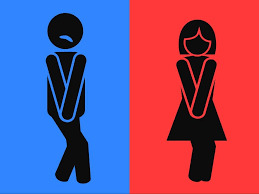
Many people suffer from urologic diseases. Urinary diseases include urinary tract infections, bladder control problems, and kidney stones. The urinary disease mainly affects the urinary tract system. Urinary disease involves a variety of conditions related to processing and carrying urine out of the body. If you ignore urinary problems might cause severe health conditions. It is important to be concerned about your urinary problems with the best Urologist in Ludhiana or other nearby places.
Symptoms of urologic disease
Bone pain
Blood in the urine
Trouble with urination
Pelvic discomfort
If you face such symptoms, get an immediate consult at Khosla Stone Kidney & Surgical Centre, a well-known Kidney Hospital in Punjab.
Khosla Stone Kidney & Surgical Centre - Urologist In Ludhiana - Dr Rajesh Khosla
Address: 451, Khosla Hospital, Near, Char Khamba Chowk, Model Town, Ludhiana, Punjab 141002
Contact: 09815825257
#kidney#kidney treatment#kidney stone problem#kidneystoneprevention#kidneytreatment#gallbladder#kidney stone removal surgery#urologist#urology problmes
0 notes
Text
കിഡ്നി സ്റ്റോൺ ഹോസ്പിറ്റൽ | ശ്രീരാമകൃഷ്ണ ഹോസ്പിറ്റൽ
കിഡ്നി സ്റ്റോൺ പ്രശ്നങ്ങൾക്ക് ഏറ്റവും മികച്ച ലേസർ ചികിത്സ നേടൂ, ശ്രീരാമകൃഷ്ണ ഹോസ്പിറ്റലിൽ ഞങ്ങൾക്ക് മികച്ച യൂറോളജിസ്റ്റുണ്ട്. കൂടുതൽ വിവരങ്ങൾക്ക് +91 7970 108 108 എന്ന നമ്പറിൽ ബന്ധപ്പെടുക.
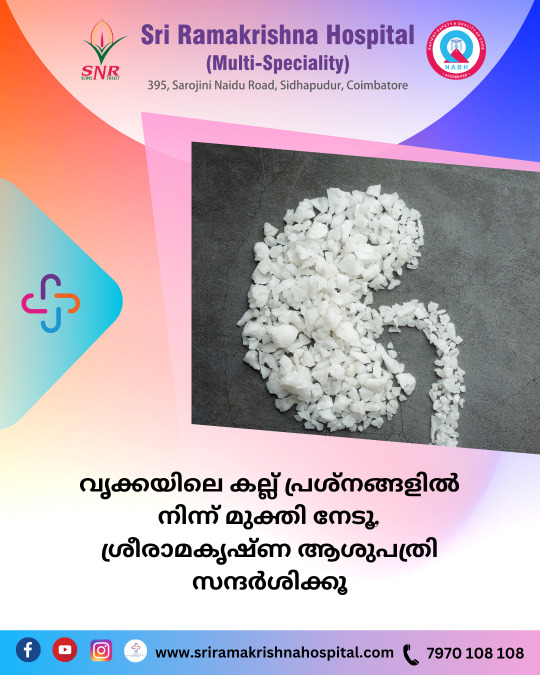
0 notes
Photo
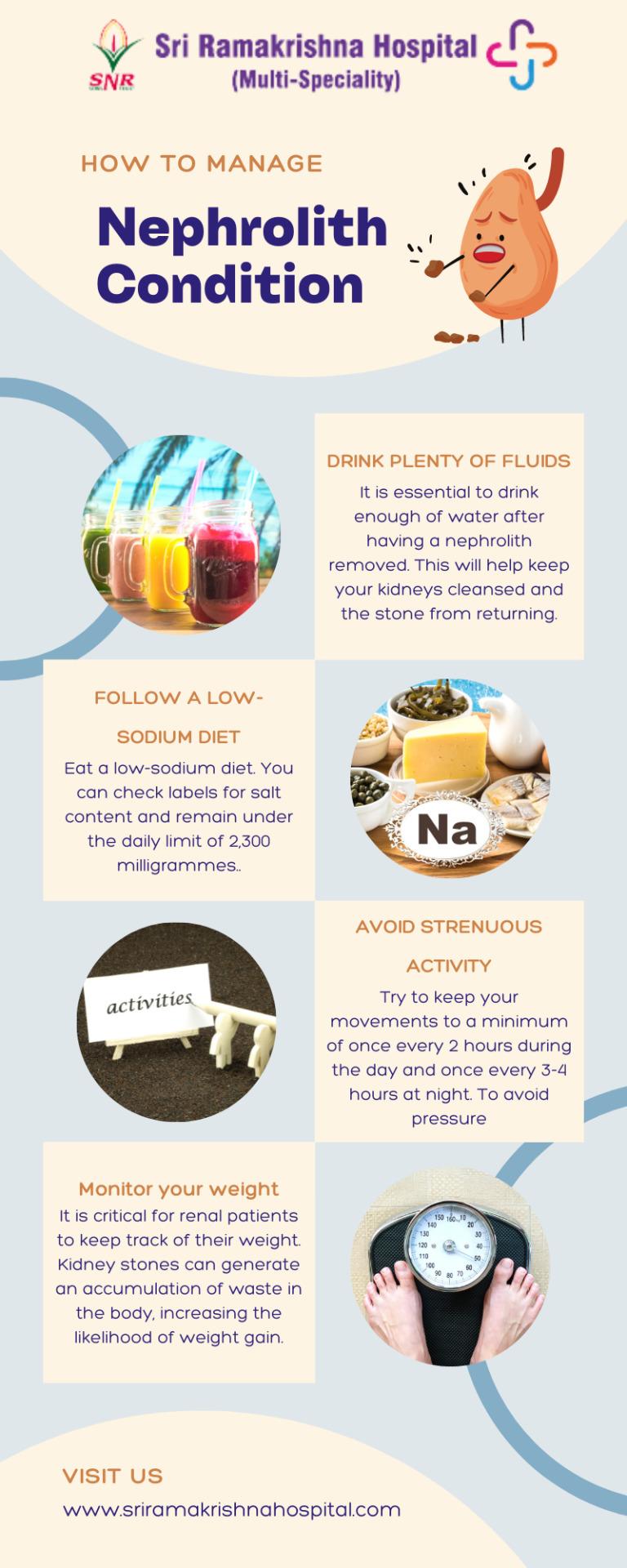
Help yourself with Nephrolith Condition!
Kidney stones form when your urine contains more crystal-forming substances than the fluid in your urine can dilute, such as calcium, oxalate, and uric acid. Simultaneously, your urine may be lacking in chemicals that keep crystals from staying together, producing an ideal environment for kidney stones to grow.
If you've recently undergone nephrolith therapy, you may feel the urge to be managed. Unfortunately, if that's the case, no one will likely do the managing for you; you'll have to do it yourself. There are, thankfully, things you can do to make your own self-management easier and more effective, so keep reading!
Check how to get rid of them with Nephrolith treatment
0 notes
Text
Best Urology Doctors in Chennai | Best Urologist in Chennai | Pediatric Urology

Sakthi Hospital offers treatments for a wide range of urologic diseases. Centre of Excellence for Urology. Most innovative laser and laparoscopic procedures has been established with an aim to bring best-class facilities and the highest standards of medical care. For more details contact us.
#Best Pediatrics Urology#Urology doctor#urology specialists in Chennai#Top urologist surgeons#urology#pediatrics#surgery#surgeon#urologist#kidney#kidney stone treatment#kidney stones#kidney stone removal surgery#kidney stone problem
0 notes
Text
Robotic Surgeon in Chennai | Chennai Kidney Care

Chennai kidney care Hospital is the top rated hospital for Chennai. We offer best Robotic Surgery in Chennai. For appointment call us now
#Kidney Surgeon#Best Nephrologist Surgeon in Chennai#Dialysis hospital in Chennai#Best kidney stone doctor in Chennai#ECIRS specialist in Chennai#kidney hospital in Chennai#Dialysis center in Chennai#dialysis#kidney#kidney stone removal india#kidney stone treatment#kidney stone problem#kidney stone removal surgery#nephrologist#best nephrology hospital in lucknow#best kidney stone doctor in chennai#oncology
1 note
·
View note
Video
youtube
Kidney Stone Symptoms in Hindi by Dr. Niren Rao
In this video, Dr. Niren Rao has shared how one can identify kidney stones through their symptoms. After identifying the symptoms it is important to visit a urologist timely for the right diagnosis so that early treatment can be done.
#kidney#kidney stone doctor near me#kidneystone#kidney stone removal surgery#kidney stone treatment#kidney stone symptoms#kidney stone problem#delhi urology hospital#Dr Niren Rao
1 note
·
View note
Text

#funny memes#tittie meats#kidney stone specialist#kidney stone treatment#kidney stone removal#kidney stone surgery#kidney stone symptoms#kidney stones#crunchy
4 notes
·
View notes
Text
Percutaneous Nephrolithotomy (PCNL)
Percutaneous nephrolithotomy (PCNL) is a surgical procedure to remove kidney stones that are too large to pass naturally or by other non-invasive treatments. In this procedure, a small incision is made in the back to create a tunnel through the skin and tissue to access the kidney. Then an endoscope is inserted through the incision to find and remove kidney stones.
PCNL is usually performed under general anesthesia and requires a short hospital stay of 1-3 days. This procedure has a high success rate and is considered safe and effective in treating large or complex kidney stones. This procedure is recommended for patients with kidney stones larger than 2 cm or located in areas of the kidney that are difficult to access with other non-invasive treatments. PCNL is also used in patients with other medical conditions that make other treatments less safe or effective.
Prior to the procedure, the patient may need to have imaging tests, such as a CT scan or ultrasound, to locate kidney stones and determine the best method for their removal. Patients are also advised to stop taking blood thinners such as aspirin and warfarin before surgery to reduce the risk of bleeding.
During surgery, the patient lies on their back and a small incision is made in their back. A guidewire is then inserted into the kidney through the incision and tunneled with a series of dilators. A nephroscope, a thin tubular instrument with a camera and light source, is inserted through a tunnel to locate and remove kidney stones. After the stone is removed, a tube called a nephrostomy tube is inserted into the kidney to drain any remaining fluid and debris.
After the procedure, patients may experience pain or discomfort in the back or abdomen and may be given pain relievers to manage these symptoms. Patients are also advised to drink plenty of fluids to wash away any remaining stone debris. In some cases, patients may need to undergo additional procedures to completely remove all kidney stones.
Overall, PCNL is a safe and effective surgical procedure for treating large or complex kidney stones. Patients should discuss the risks and benefits of this procedure with their doctor to determine if this is the best treatment option for their individual needs.
For more information Visit: www.drmayurdalvi.com
#surgery#urology#PCNL#kidney stones#percutaneous nephrolithotomy#healthcare#medical procedures#minimally invasive surgery#surgical techniques#anesthesia#imaging#nephrology#patient care#recovery#post-operative care#stone removal#surgical instruments#surgical incision#back surgery#abdominal pain
4 notes
·
View notes
Text
hi! not sure if anyone is on (it’s 4 am for me currently) but could i get some thoughts and prayers or just good vibes sent my way?
#tw: emetophobia#my dad was just taken in an ambulance to the hospital#he had kidney stone removal surgery yesterday and is not recovering too well from it#he’s been throwing up and having level 10 rated pain#the doctors should’ve never allowed him to come home#i’m so glad that my mom made the call to get him re-admitted#hoping that they take care of him and do everything they can to make the recovery less painful and more bearable for him
2 notes
·
View notes
Text
The Kidney Stone Removal Report Joe Barton: A Comprehensive Reviews
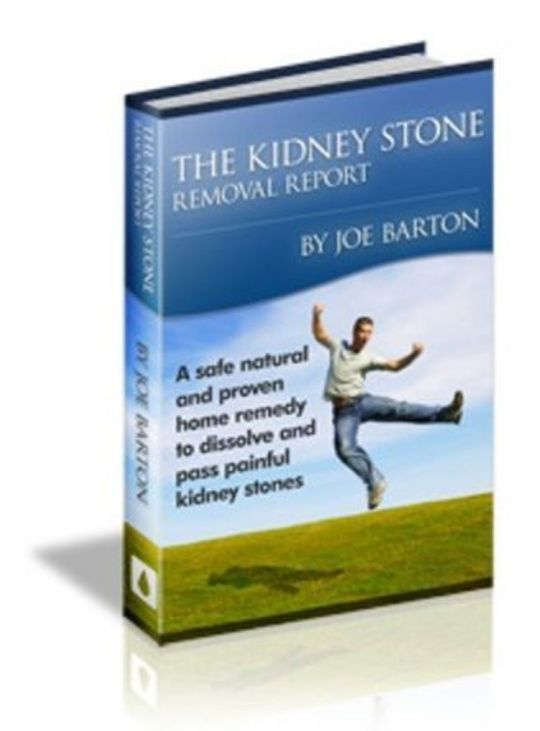
The Kidney Stone Removal Report, created by Joe Barton, is presented as a comprehensive guide for treating kidney stone conditions naturally. Here's a summary of the key information from the provided review:
See More About "The Kidney Stone Removal Report" Here!
Program Overview:
Author: Joe Barton, a blogger, medical researcher, and kidney stone consultant.
Click Here to Download eBook "The Kidney Stone Removal Report" PDF by Joe Barton!
Program Content:
Format: The guide is presented in downloadable PDF format, making it accessible immediately after purchase.
Main Manual: The primary manual provides a step-by-step natural remedy for dealing with kidney stones permanently.
What You'll Learn:
Natural Treatment: The guide focuses on natural and permanent solutions for dealing with kidney stones.
Prevention Strategies: It offers insights into nutritional supplements, daily water intake, and dietary recommendations to prevent the recurrence of kidney stones.
Benefits of the Product:
Safety: The treatment is presented as safe for diabetics and pregnant women.
Taste: Described as tasting better than alternative methods involving olive oil.
No Drugs or Surgery: The program claims to offer relief without the need for potentially addictive drugs or surgery.
Quick Relief: Promises fast and painless relief from kidney stone-related pain.
Cost:
The product is priced at $39.97, considered affordable for an effective and safe kidney stone treatment.
Money-Back Guarantee:
The author provides a 100%, unconditional money-back guarantee within 60 days for customers who are not satisfied with the results.
Full Package:
The full package includes the Kidney Stone Removal Report main e-book.
Conclusion:
The Kidney Stone Removal Report is recommended as a cost-effective, natural solution for individuals dealing with kidney stones. The provided money-back guarantee adds to the assurance that customers can try the program without significant financial risk.
Please note that individual results may vary, and consulting healthcare professionals before making significant lifestyle changes is advised.
Click Here to Download PDF "The Kidney Stone Removal Report" eBook by Joe Barton!
#health & fitness#kidney stone specialist#kidney stone treatment#kidney stone surgery#kidney stone removal#kidney stone symptoms
0 notes
Text
Relieving the Burden: Finding the Right Kidney Stone Removal Hospital
Kidney stones can be an excruciatingly painful condition that affects millions of people worldwide. When diagnosed with kidney stones, seeking timely and effective treatment becomes a top priority. Choosing the right hospital for kidney stone removal is crucial in ensuring a successful and comfortable recovery.
In this blog post, we will explore the importance of finding the right kidney stone removal hospital and provide guidance on selecting the best facility to alleviate your condition.
Understanding Kidney Stones and Treatment Options:
Before delving into the selection process, it’s essential to understand what kidney stones are and the available treatment options. Kidney stones are hard deposits that form in the kidneys when certain substances in the urine become highly concentrated. The size, location, and composition of the stones determine the appropriate treatment approach.
Common treatment options include:
a. Extracorporeal Shock Wave Lithotripsy (ESWL): This non-invasive procedure uses shock waves to break down the stones into smaller fragments that can pass through the urinary tract.
b. Ureteroscopy: A minimally invasive procedure where a thin tube equipped with a camera is inserted into the urethra to locate and remove or break up stones.
c. Percutaneous Nephrolithotomy (PCNL): This surgical procedure involves making a small incision in the back to access and remove large or complex kidney stones.
Factors to Consider When Choosing a Kidney Stone Removal Hospital:
Selecting the right hospital for kidney stone removal can significantly impact the quality of care, treatment outcomes, and overall experience. Here are some crucial factors to consider:
a. Expertise and Experience: Look for hospitals with a dedicated urology department or specialized kidney stone removal unit. Check the qualifications and experience of the urologists and medical staff, ensuring they have the expertise to handle your specific condition.
b. State-of-the-Art Facilities and Technology: Advanced medical facilities and cutting-edge technology are essential for accurate diagnosis, precise treatment, and optimal patient comfort. Look for hospitals equipped with modern equipment such as lithotripters, ureteroscopes, and laser technology.
c. Reputation and Success Rate: Research the hospital’s reputation and success rate in performing kidney stone removal procedures. Read patient testimonials, reviews, and seek recommendations from trusted sources to gauge the hospital’s track record.
d. Comprehensive Care and Support: Opt for a hospital that provides comprehensive care, including pre- and post-operative support. Look for facilities that offer personalized treatment plans, dietary guidance, and access to rehabilitation services if needed.
e. Accessibility and Location: Consider the hospital’s location and accessibility, especially if you may require multiple visits or surgery. Choose a hospital that is convenient to reach and offers necessary amenities for patients and their families.
f. Insurance Coverage and Affordability: Verify whether the hospital accepts your health insurance or offers financial assistance programs. Evaluate the overall cost of treatment, including consultation fees, diagnostic tests, and potential post-operative care.
Seek Expert Opinions and Consultations:
Before making a final decision, it is advisable to seek expert opinions from multiple urologists. Consultation with experienced doctors will help you understand your condition better and explore the various treatment options available. Discuss potential hospitals and treatment plans, asking questions about success rates, potential risks, and recovery time.
Conclusion: Finding the right hospital for kidney stone removal is a crucial step towards overcoming this painful condition and ensuring a smooth recovery. By considering factors such as expertise, facilities, reputation, and comprehensive care, you can make an informed decision that aligns with your needs.
Remember to consult with multiple experts to explore treatment options and gain valuable insights. With the right hospital and medical team by your side, you can regain your
#kidney stone removal hospital#kidney stones hospital#kidney stone treatment#kidney stone surgery#kidney stone removal#kidney stone removal surgery#kidney stone doctor near me#stone removal surgery#kidney stone operation#kidney stone doctor
0 notes